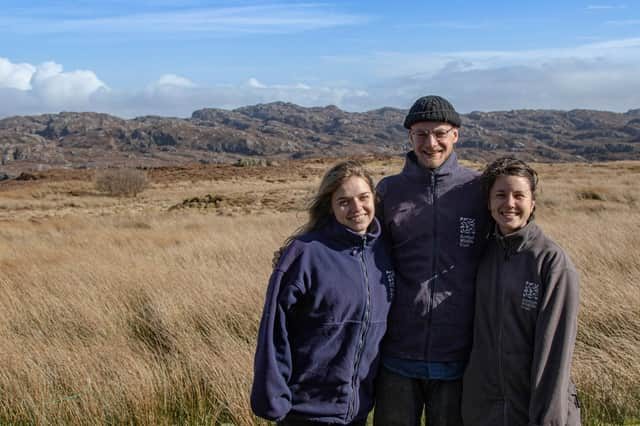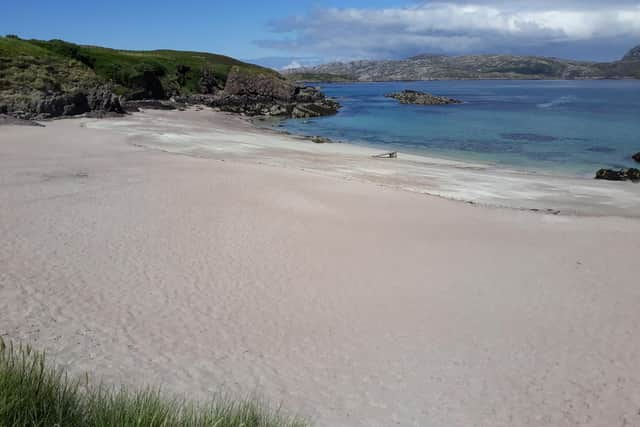Three wildlife rangers are self isolating on this remote Scottish island


The workers have been posted to the far-flung colony on Handa Island, Highlands - located off Scotland's rugged northwest coast.
The island, which has had no permanent residents since 1848, usually attracts around 7,000 visitors each summer, eager to see guillemots, kittiwakes, fulmars and the smaller populations of seabirds - such as Arctic skuas and puffins.
Advertisement
Hide AdAdvertisement
Hide AdDolphins, whales, seals and otters are also often spotted off the island's shores.


On the island's busiest days it can receive up to 150 visitors, with striking views of the mainland mountains of Suilven, Foinaven and Ben Mor Coigach.
However rangers Erika Faggiani from Orxeta,Spain and Johnny Rolt from Bristol, will not be hosting visitors this summer as the coronavirus pandemic continues.
Along with assistant ranger Roxana Buhus from Romania, they will monitor Handa's wildlife till September and undertake a range of tasks, including breeding bird surveys and practical conservation work.
The workers said they have 'never appreciated the benefits of extreme isolation more than we do now', and will visit a shop on the mainland just once a week to restock food and essential supplies.
In the 19th century, Handa was recorded as having a population of around 65 people.
The islanders had a parliament, similar to that of St Kilda, which met daily, and a female-centric society where the oldest widow on the island was considered its "Queen."
In their first blog, Johnny, Erika and Roxana wrote: "Life on Handa has been, relative to the rest of the world, plodding along fairly normally since we arrived.
"This year there are just three of us on the island.
Advertisement
Hide AdAdvertisement
Hide Ad"Erika spent last season on Handa as the Skua fieldworker and for the last three months Johnny was the practical worker.
"This is Roxy's first time on the island but she has settled in wonderfully, despite the slightly different set-up this year.
"We feel truly blessed to be on Handa during these turbulent times.
"Our first ten days brought wind - lots of wind.
"Stiff southwesterlies gusting up our backsides at 65mph.
"Reserve manager Rab Potter joined us for our first five days to get us up to speed with the running of the island and to figure out new protocols for working on Handa with a reduced team and potentially no visitors to manage.
"Once we had stocked up on food, fuel, fishing supplies and enough vegetable seeds to rival the Svalbard Global Seed Vault, we bid farewell to Rab and headed back to Handa before it got dark.
"On Saturday we woke to two golden eagles soaring low over the sheep fank by the bothy, seemingly unbothered by barely suppressed squeals of excitement.
"Through placing chew plates around the island, we are able to monitor the presence and distribution of Handa's brown rat population, with future plans to install traps to reduce their detrimental impact on the island's ground nesting birds.
"We are extremely grateful to be able to continue work on this special island and have never appreciated the benefits of extreme isolation more than we do now."